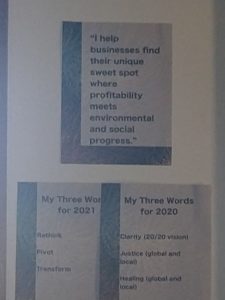The Sweet Spot Where Marketing Meets Social Change
I love this post from the Changemaker Institute, How to Change The World By Meeting People Where They Care. I love it because it approaches social change through a marketing lens. It starts by revisiting the famous Loving v. Virginia Supreme Court Case of 1967, which struck down longstanding bans on marrying across the color line. Pointing out how Richard and Mildred Loving got people to care, the post goes on to ask how to get people to care about what you’re doing–and answers with a business-oriented focus on outcomes of your social change action, which you arrive at through these questions (quoting directly from the post):
- What does it take to get an investor to believe in your business and invest in your mission?
- What does it take to get customers to believe in your product or service and invest in it?
- What does it take to get your employees to believe in your company’s mission and invest time and energy in supporting it?
- What does it take to get people to support your vision for a better world? [end of quote]

This intersection is so important to me that on the wall behind my computer monitor, where I see it many times a day, I have a poster that reminds me, “I help businesses find their unique sweet spot where profitability meets environmental and social progress.” It’s important enough that I’ve written four books making the profitability case for business to deeply embrace social change and planetary healing, and have also written about the success lessons activists can take from business. It’s the basis for much of my consulting and speaking.
To take it a step further: I see getting out of the silo, rubbing shoulders with people who are not like you and examining different ideas from different industries or different sectors of the same industry as crucial is testing your own ideas, sharpening them enough to really get inside someone’s head and cause enough discomfort with the status quo to embrace the brighter future you propose. Whether you’re marketing a business or a movement, that’s a pretty important thing to do.
